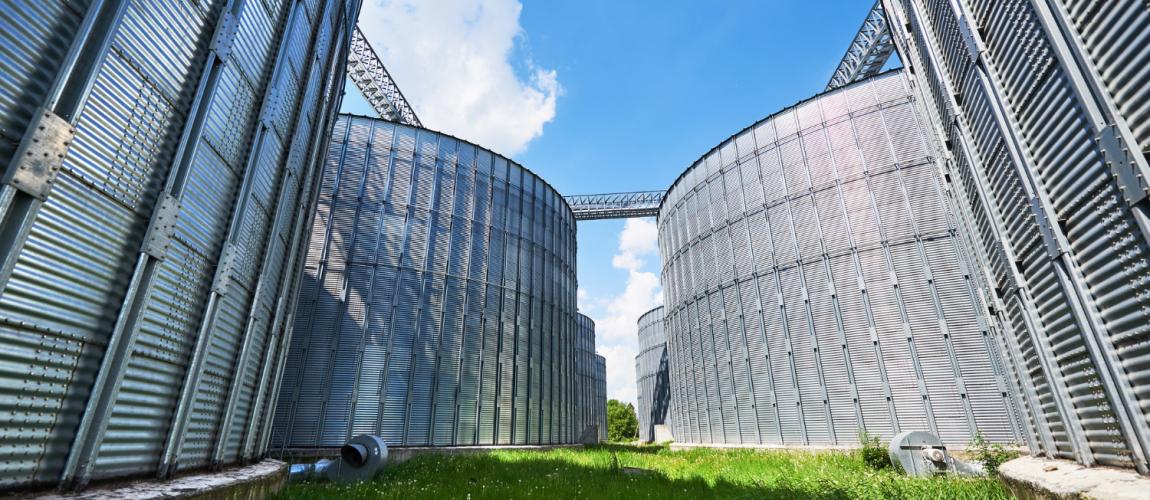Grain Silos Project in Punjab, India

Photo Credit: Image by Freepik
On this page: A case study on Grain Silos Project in Punjab, India. Find more at the Municipal Public-Private Partnership Framework - Project Summaries section for brief summaries of around 100 projects from around the world, examples of successes and challenges, as well as innovative ideas on solutions, or visit the Guidelines to Implementing Asset Recycling Transactions Section Overview and Content Outline, or download Full Version of the Report.
Project Summary: Background A country known for its agriculture production, much of India’s food grain is nonetheless stored in old warehouses. These outdated facilities use openair cover and plinth (CAP) facilities, which are prone to damage and vulnerable to changing weather conditions. As a result, some USD 14 billion in food grain production is damaged annually, according to the Food and Agriculture Organization (FAO). The storage problem is particularly acute in Punjab, known as the “breadbasket” of India. Punjab produces around 22 percent of India’s total food production, yet it has a shortage in storage capacity of seven million tons. To help address this problem, the state government decided to pursue a pilot PPP with help from IFC as transaction advisor. The PPP aimed to procure a private firm to build, own, and operate 50,000 metric (MT) tons of storage using silos, vertical sheet-metal structures equipped with automated operation, and real-time monitoring for grain temperature and infestation. The silos were expected to facilitate bulk preservation and ensure the quality of stored grains for three years to avoid waste. Project Structure In 2010, the Punjab State Grain Procurement Corporation (PUNGRAIN), acting as the contracting agency, awarded a 30-year concession to LT Foods Limited, a Delhi-based food processing company with 40 years of experience in processing, storing, and marketing Basmati rice globally. The private partner was selected through a competitive bidding process based on a technical evaluation and lowest level of fixed tariff. Under the contract, LT Foods is responsible for financing, designing, constructing, operating, and maintaining four silos of 12,500 MT each (for a total capacity of 50,000 MT) in Amritsar, Punjab. These silos are to be used for storage of grain procured by the government for its food subsidy schemes and under its support-price operations. LT Foods was obliged to purchase the necessary land, build the facility, and prepare the silos for operation before the concession agreement became effective. At the end of the concession, the facility will remain with the private operator for private use. The total project cost was estimated at about USD 7 million. The project received debt financing from YES BANK and Rabobank. PUNGRAIN maintains responsibility for: (i) procuring and delivering the grain in bags to the concessionaire for storage in the silos; (ii) making payments for guaranteed fixed storage service charges and variable service charges; (iii) setting standards and specifications; and (iv) monitoring and verifying the private partner’s performance. Although PUNGRAIN retains the payment and demand risks, the financing, construction, commissioning, operating, and performance risks are transferred to the concessionaire. The fixed payments are meant to reduce the operating risks of the concessionaire. The initial tariff for a fixed charge for the agreed tonnage (irrespective of the capacity used) was around INR 1,400/MT (USD 20/MT), and the variable reception and dispatch service costs were 7.5 percent of the fixed service charge. However, these rates were later deemed too high, resulting in the fixed fee being reduced to INR 1,100/MT (USD 16/MT) after a renegotiation process. It has been estimated that the government will save approximately USD 6 million over the concession period as a result of the renegotiated fee. Lessons Learned The 50,000 MT silos, which opened in April 2011, received a Gold recognition award from IFC, based on the role the project played in helping to reduce problems related to the conventional CAP storage model and system of commission agents. The “Amritsar model of silos” project has become the role model for the Food Corporation of India (FCI) and other state governments in erecting silos across India. There were at least three factors that helped to make this project successful, namely: The transparent and competitive bidding process, which led to the selection of a qualified, reliable partner on a least-cost basis to the contracting agency; Clear delineation of the roles and risks allocated between PUNGRAIN and the private partner, with objective standards and specifications and monitoring mechanisms; Strong commitment to the project on the part of PUNGRAIN, as evidenced by its willingness to assume the payment and demand risk; and The parties’ willingness and ability to renegotiate the fixed storage fee to ensure the project’s viability over the long term.1 Footnote 1: Case source(s): https://openknowledge. worldbank.org/ bitstream/handle/ 10986/21060/ 932560WP0Box380 ds0in0small0projects. pdf?sequence=1 Accessed on June 2, 2019. https://library. pppknowledgelab.org/ both/documents/1979 Accessed on June 2, 2019. https://economictimes. indiatimes.com/news/ economy/agriculture/ government-expectsto- create-15-lakhtonnes- silo-capacityunder- ppp-by-2019/ articleshow/65907877. cms?from=mdr Accessed on June 2, 2019. http://www.fnbnews. com/Top-News/ Foods-processing-co- LT-Foods-sets-up-silofor- wheat-storage-in- Punjab Accessed on June 2, 2019. https://www. thehindubusinessline. com/economy/ agri-business/silostorage- of-foodgraingathers- momentum/ article24873035.ece Accessed on June 2, 2019. http://documents. worldbank.org/curated/ en/3885615063536784 03/pdf/119986-WPPUBLIC- 60p-PIQ GrainStoragePPPs ONLINE.pdf Accessed on August 18, 2019.
This is a new section of the PPPLRC website and is currently in draft form. Your feedback is welcome: If you would like to comment on the content of this section of the website or if you have suggestions for links or materials that could be included please contact us at ppp@worldbank.org.
To find more, visit the The Municipal Public-Private Partnership Framework - Project Summaries section, the Guidelines to Implementing Asset Recycling Transactions Section Overview and Content Outline, or download Full Version of the Report.
Updated: March 9, 2024